Despite accusations, criticism and suspicions on both sides of the Florida Strait, a group of private entrepreneurs from Cuba achieved something unthinkable just months ago: traveling to Miami to meet with U.S. colleagues, legal experts and authorities.
There were more than 70 men and women from almost the entire country, not only dedicated to the import of products, the most visible and, at the same time, the most questioned activity within the emerging sector, mainly due to its sales prices. There were also food producers, builders, clothing manufacturers, art creators, beauty salon owners, interior designers, solar energy promoters, software and other computer products engineers, and much more.
They do all this while facing difficulties that result from the severe economic crisis, and the financial difficulties and contradictions of the legal framework in which they must operate; the fluctuations and lack of protection of the exchange market on the island; the systematic loss of the workforce due to the sustained migratory wave; suspicions of authorities and some of their potential clients; and the impact of U.S. sanctions, among other obstacles.
In Miami they were received by U.S. and Cuban-American businesspeople who have been doing business in Cuba for years, and others who want to join and see a promising opportunity in the Cuban private sector. Some, beyond commercial interest, recognize in private entrepreneurs a factor of change and development for the country in which they were born, and of benefit for their community.
Several of the latter are not exactly supporters of the Cuban government ― and they made it clear in their exchanges ― but, unlike those in Florida who refuse any dialogue wielding suspicions and generalizations, they prefer to see the half-full glass and offer their support and advice to fellow countrymen who, according to some, remind them of their beginnings in the business world.
The economic growth of private businesses and of Cuba in general, the forging of new business alliances, the push to the governments of both countries to make current regulations more flexible and expand for the sake of these growths and alliances, the search and use of common spaces, and the possibility of closing production cycles, were the most reiterated purposes during the days of the meeting.
Stepping on the terrain
If during the first days the exchange focused on panels, presentations and talks, in the following days the private entrepreneurs from the island visiting Miami went out to tour the terrain and meet first-hand potential suppliers and business partners at their own headquarters.
The first stop of the Cuban delegation was in Port Everglades, in Fort Lauderdale, where they visited the facilities of the Crowley Company, a shipping company with more than twenty years of presence in Cuba, which has also opened the door to the island’s private sector.
In addition to a guided bus tour, in which they were able to observe the work dynamics of the establishment, the Cuban entrepreneurs received detailed information about the company’s operations from Jay S. Brickman, head of business related to Cuba, and other executives.
They also learned about the specificities and authorizations necessary to carry out imports and exports to and from the United States, and other services that they can contract to expand their businesses.
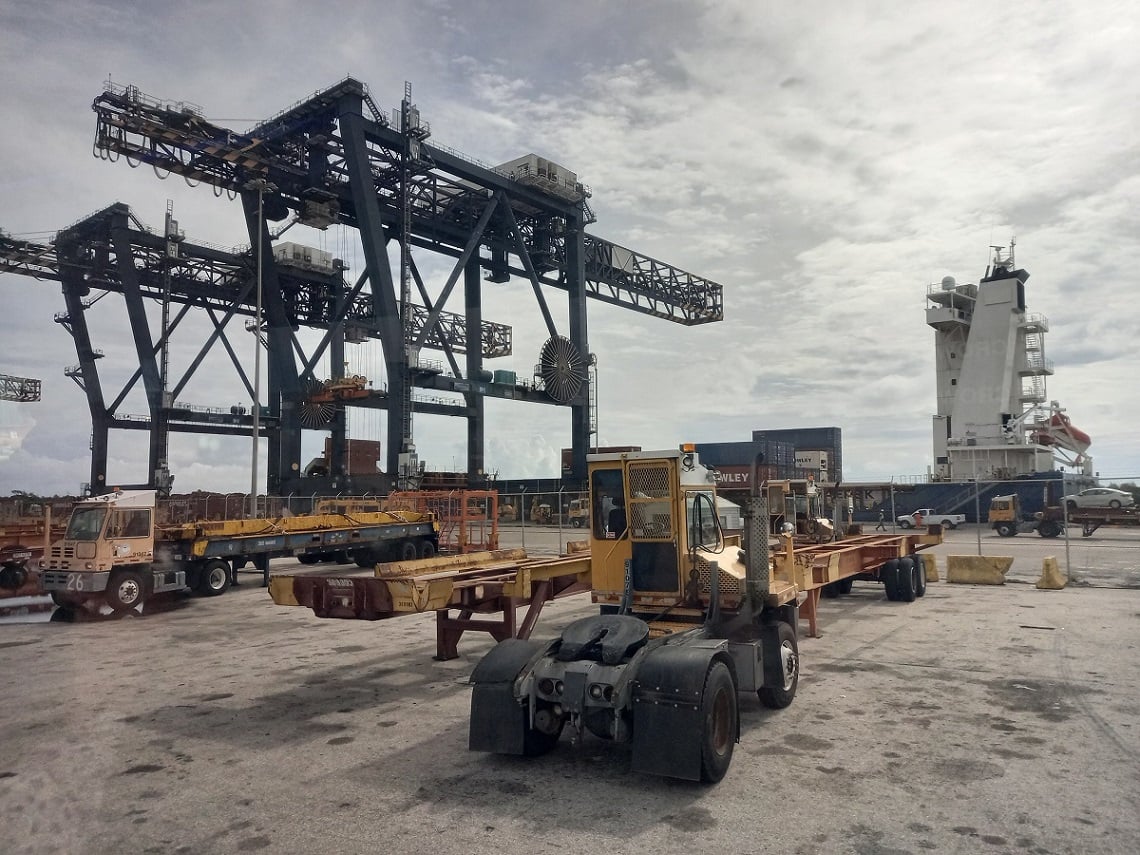
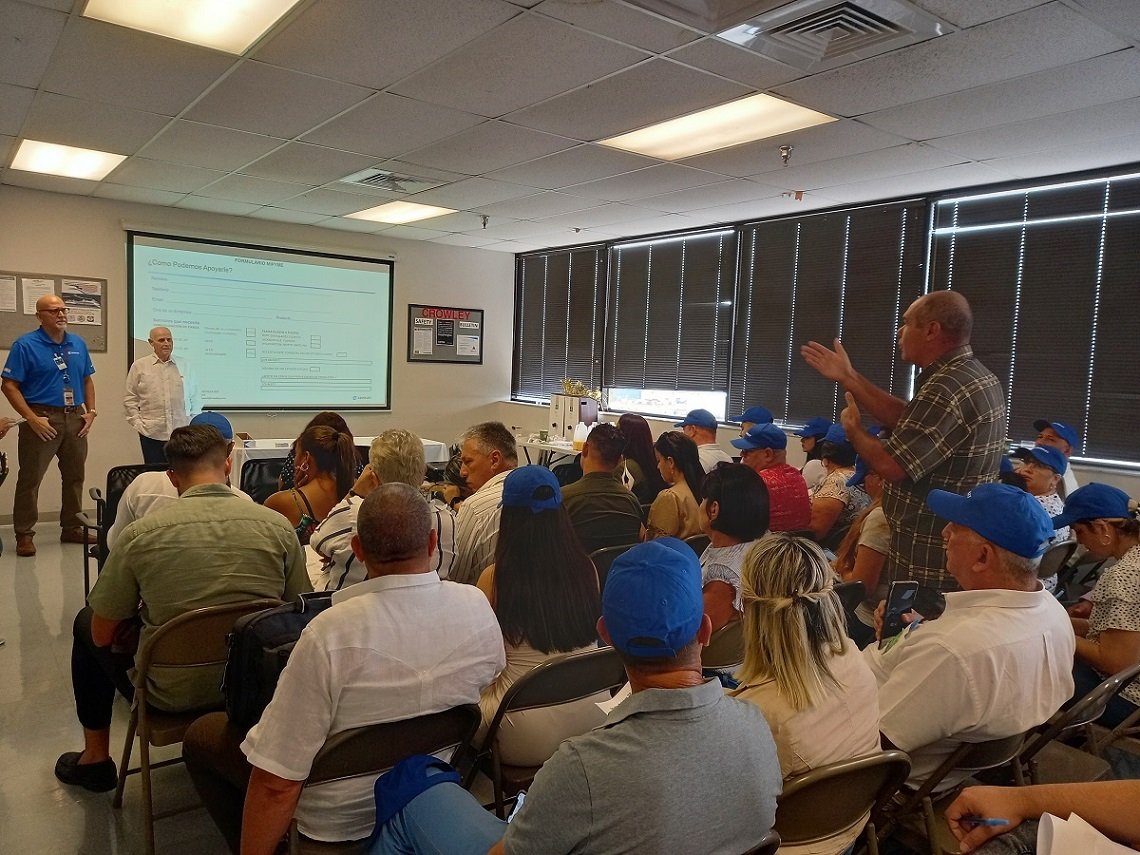
Something similar happened in warehouses of Atlantic Grocery Supply, a company based in Pompano Beach that distributes a wide range of products, mainly food, and that carries out operations to Cuba. Its president, Christopher Miller, and its vice president, Amaury Portela, showed their varied catalog and explained their operational dynamics and commercial facilities to Cuban private entrepreneurs.
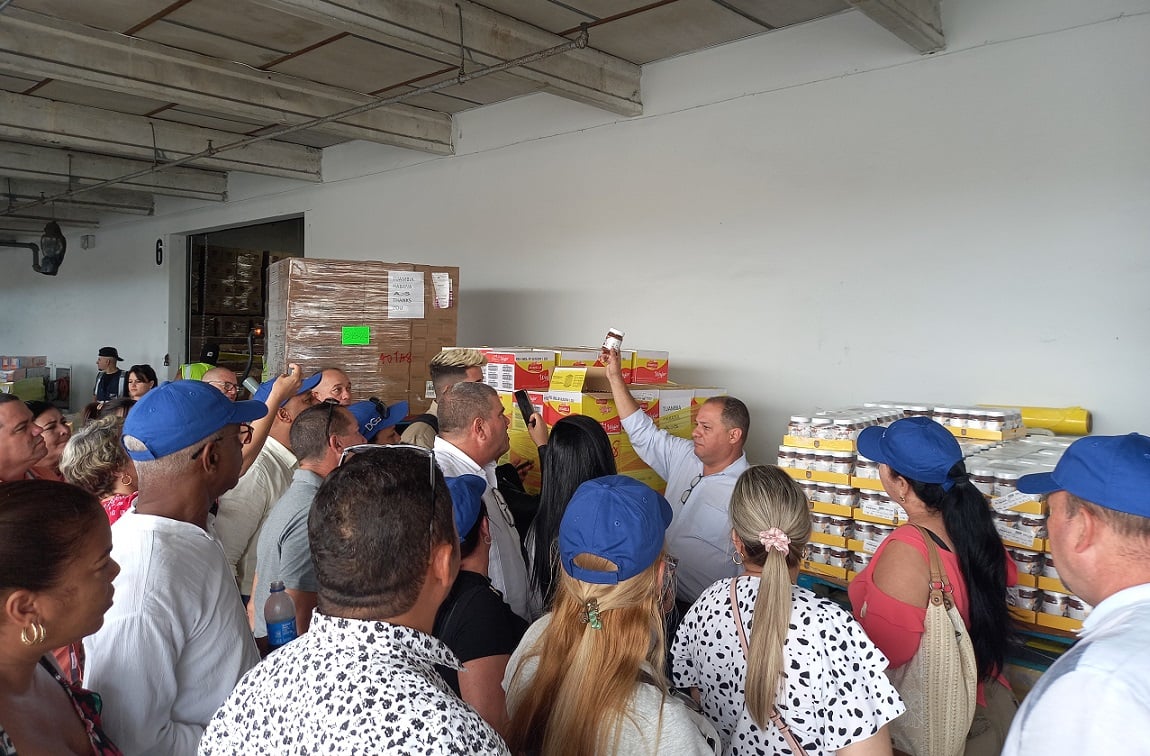
Two other stops during the visit were the De la Cruz Collection art museum, in Miami, where they were received by its owner, businessman and collector Carlos Manuel de la Cruz, and by former Republican congressman Carlos Curbelo; and the offices of the successful construction company Century Homebuilders Group, in Coral Gables. In the latter, the host was Sergio Pino, president of the company, who motivated the visitors to persevere as entrepreneurs, and to strengthen themselves as a business community for the benefit of Cuba.
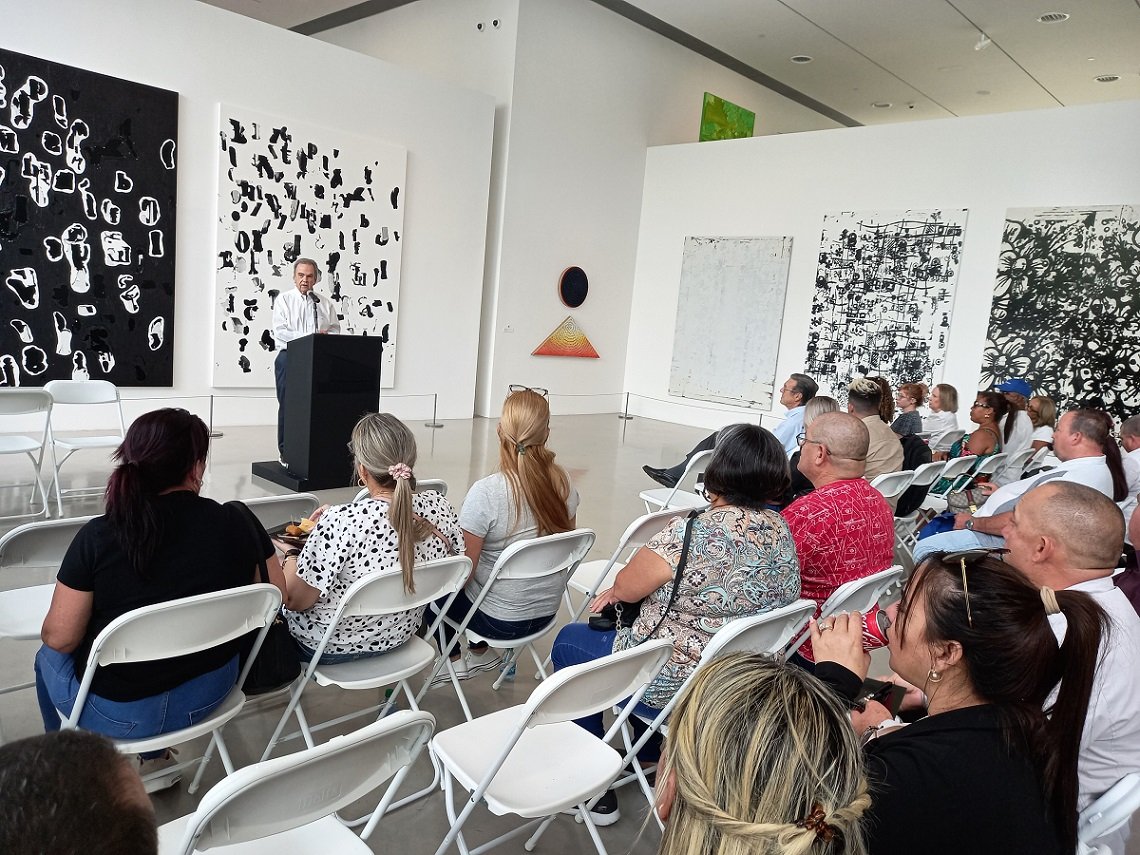
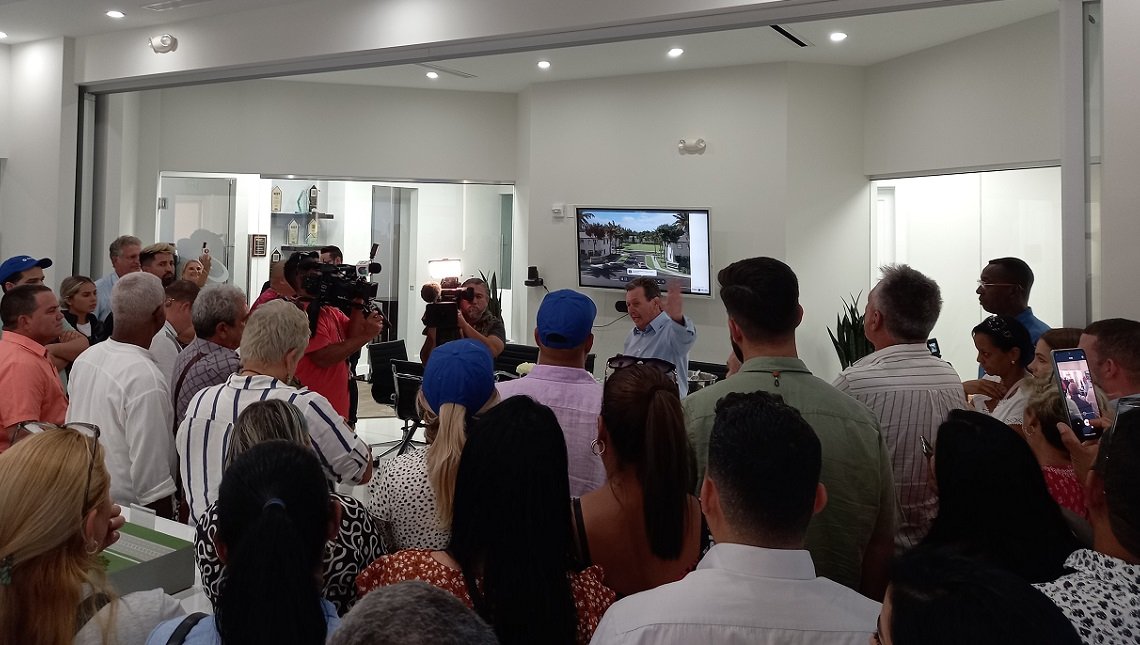
At Katapulk
An important moment of these tour days was the visit to the office of the company Fuego Enterprises, led by businessman Hugo Cancio, and to which Katapulk, an online sales platform aimed at Cuba, belongs. Close to turning three years old, the marketplace has been expanding its offers and successfully positioning itself throughout the island, a task in which since its inception it has established alliances with the private sector.
“We have been hoping for a long time that ideology and political problems do not stop us and fighting so that meetings like this can happen, and when we see ourselves sitting today in front of a group of private entrepreneurs from Cuba like you, we cannot feel anything other than pride, because it means that the work that we have been doing for many years is beginning to flourish,” Cancio assured the visitors when receiving them at the office.
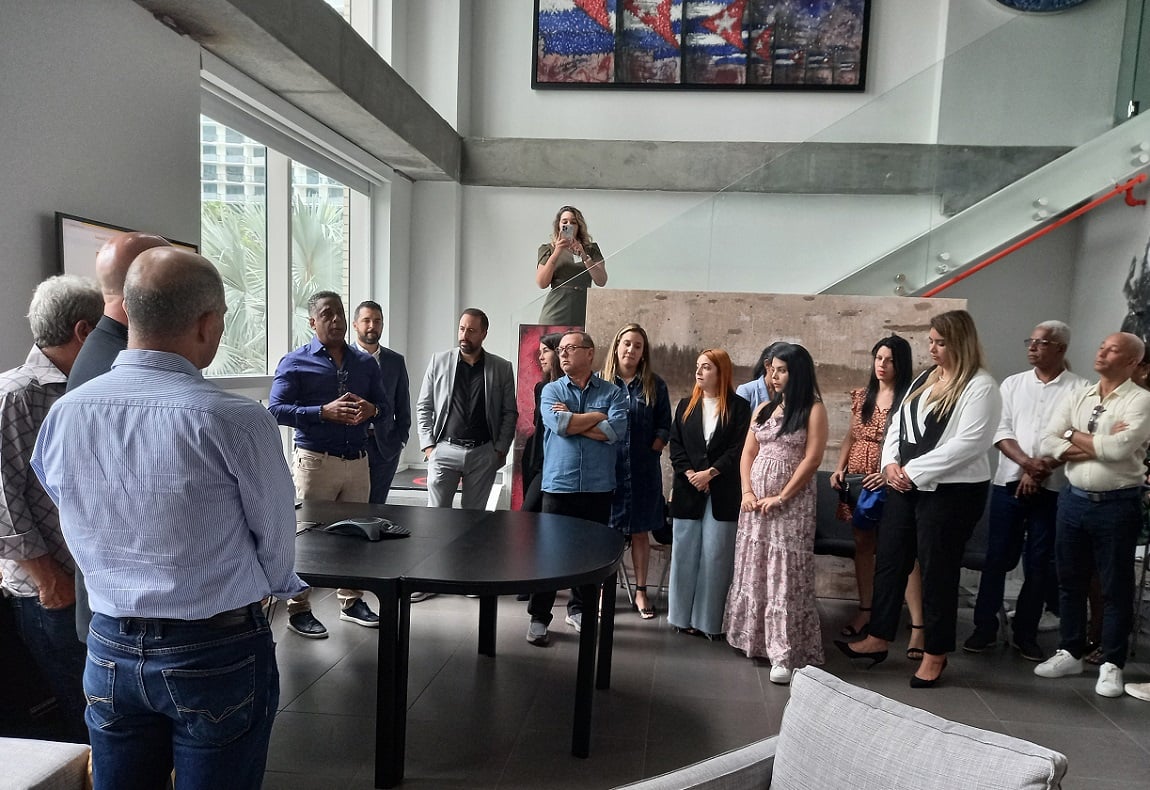
In his welcome, the president of Fuego confirmed to the Cuban entrepreneurs the support and interest in negotiating with them on the part of the U.S. business community and summarized in his words a message reiterated by the Cuban-American hosts during the days of the meeting.
“Now you have a great opportunity by being here and you cannot miss it. And you also have the responsibility, due to the possibility of having contact with authorities from the United States and also from Cuba, to be agents of change, positive changes, changes that lead to a better Cuba, that advance your interests, your projects, those of your families, but also those of your communities, your people, your country,” he said.
During the visit, the entrepreneurs were also able to exchange with other officials and executives of Katapulk, in order to consolidate business ties or establish new connections.
In addition, they learned about the development of the platform and the functionalities being worked on, such as a wallet that will allow clients to save money so that their relatives in Cuba can buy for themselves, according to their interests, instead of making purchases for them.
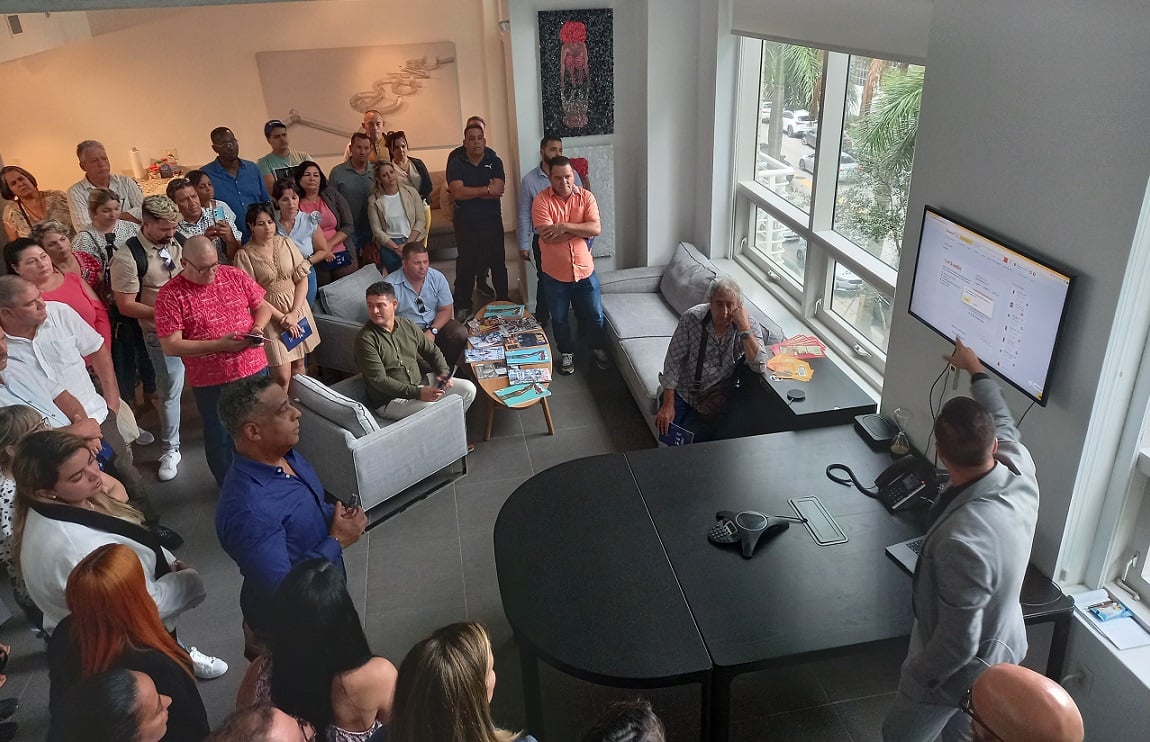
A coordination office
Another significant moment of the event, which closed the activities of Cuban private entrepreneurs collectively in Miami, was the opening of a support and coordination office to facilitate relations between the private sectors of Cuba and the United States.
For now, it is a space shared with a travel agency in Miami Dade, which is taking on the project as a new line of work aimed at businesspeople in both countries. The intention, explained Alfonso Larrea, from the Cuban MSME Evexcon, is to facilitate business interaction and provide a group of services in this regard, such as travel coordination, organization of meetings and secretarial services.
And the intention, Larrea pointed out, is to grow, always based on concrete results. The idea, he said, is to promote not only imports from the United States to Cuba but also exports and services to the United States, as well as work associations.
“What interests us are the results: that there are businesses that can achieve positive results, both from there to here and from here to there,” he noted.
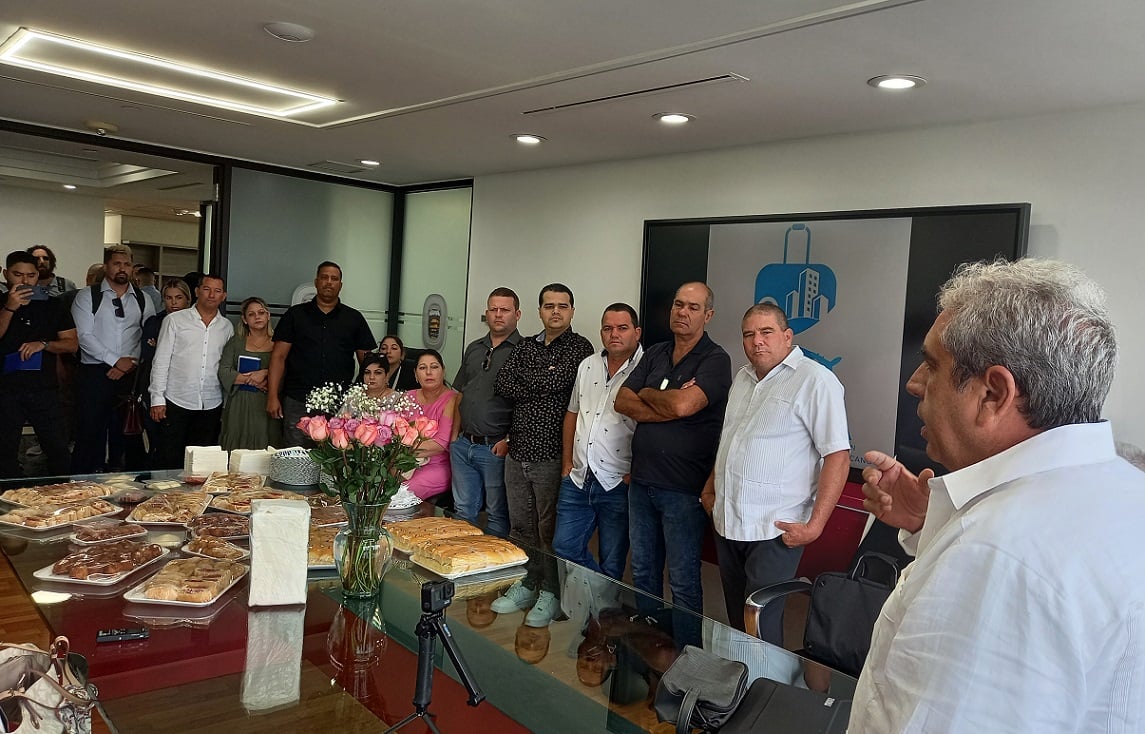
He added that, with this objective, an office will also operate in Havana, managed by Evexcom, a private business on the island that was in charge of organizing the meeting in Miami, together with former congressman Joe García and the Akerman LLP law firm.
The support and coordination office will be accessible to both U.S. businesspeople seeking to do business with Cuba’s private sector and Cuban entrepreneurs who were not currently in Miami, and wish to know how to connect with possible counterparts in the United States.
The changes will not take place “overnight”
A message that several of the hosts wanted to convey to the Cuban visitors is that changes in the scenario of economic — no longer political — relations between Cuba and the United States will not occur “overnight,” even when the governments of both countries have taken new steps towards this. For this reason, perseverance, work and transparency are the key.
Businessman Ariel Pereda, president of Pearl Merchandising & Distribution, who has been doing business with Cuba for years and maintains a growing relationship with the island’s private sector, encouraged visitors to take advantage of the opportunities that open up and not to give up in case of possible changes in regulations — such as the supposed upcoming possibility of opening accounts in U.S. banks — do not translate into immediate implementation by entities in their country.
“They are probably going to have to go to the banks many times, to show them who they are, what they do, what their intentions are, to convince them that there is no problem with allowing them to open an account, and to do so with transparency, with short reckonings, with a solid business to support them. And where doors open, take advantage of them,” he advised them.
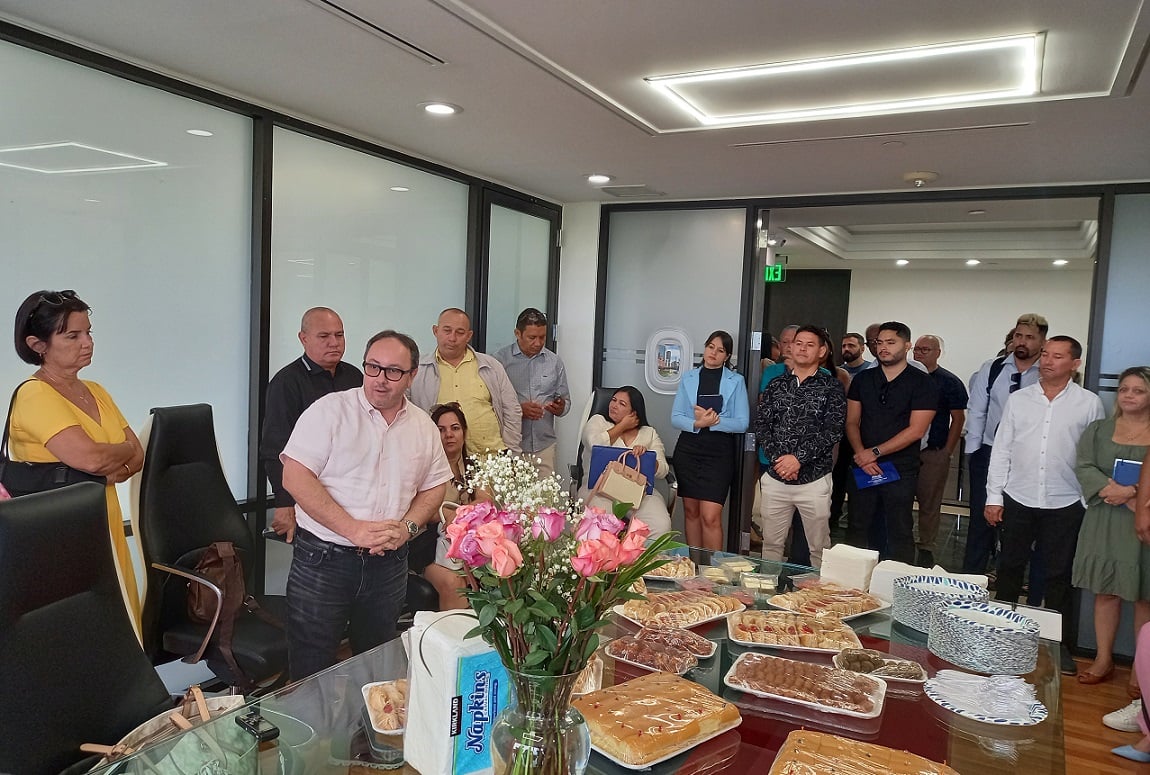
“Changes take time, they do not happen overnight, but from this side, there are people, businesspeople, lawyers, who are willing to support you, do business with you and give you the possibility of growing,” he confirmed.
For his part, Alfonso Larrea considered that the focus on business growth is the way to continue creating opportunities. Only in this way is it possible to close the circle now open in Miami and move forward despite the obstacles.
“To the extent that we organize, that we consolidate our work and have more results, we will receive more facilities from here and there,” he said during the opening of the coordination office in Miami.
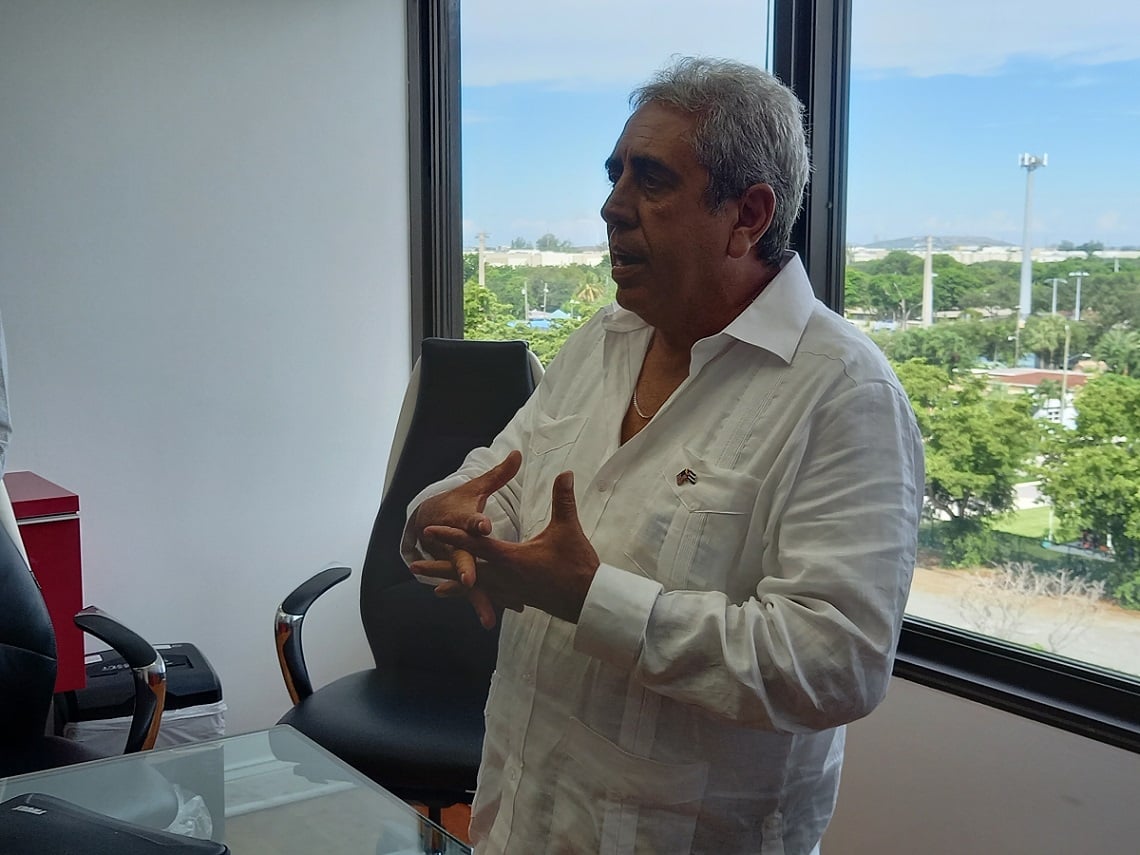
On one of the most highlighted topics regarding this unprecedented event, Larrea clarified that “contrary to what many in the United States think, that we are envoys of the Cuban government, this is not the case, nor were those of us who came here selected by a call from the State.”
“The Cuban entrepreneurs who traveled to Miami are the ones who trusted us from the beginning, in Evexcon, as a private company that has organized events like this one in the Dominican Republic, on Isla Margarita. They responded to our call from the beginning, when others had misgivings and mistrust, and that is why they have had priority, which does not mean that we are not willing to work with the rest of the private sector and that more Cuban entrepreneurs cannot join future meetings,” he specified.
The entrepreneurs speak
After an intense week of exchanges and tours ― not exempt from external reactions and controversies, but spent internally in a climate of cordiality, respect, dialogue, collaboration ― several of the protagonists on the Cuban side shared with OnCuba their assessments and expectations based on this experience.
The island’s entrepreneurs held high, first of all, the organization and the way in which the meeting took place, and agree on its relevance for their business development and the possibilities it could open, even if not in the short term, for the Cuban private sector, the country’s battered economy and the climate of bilateral relations.
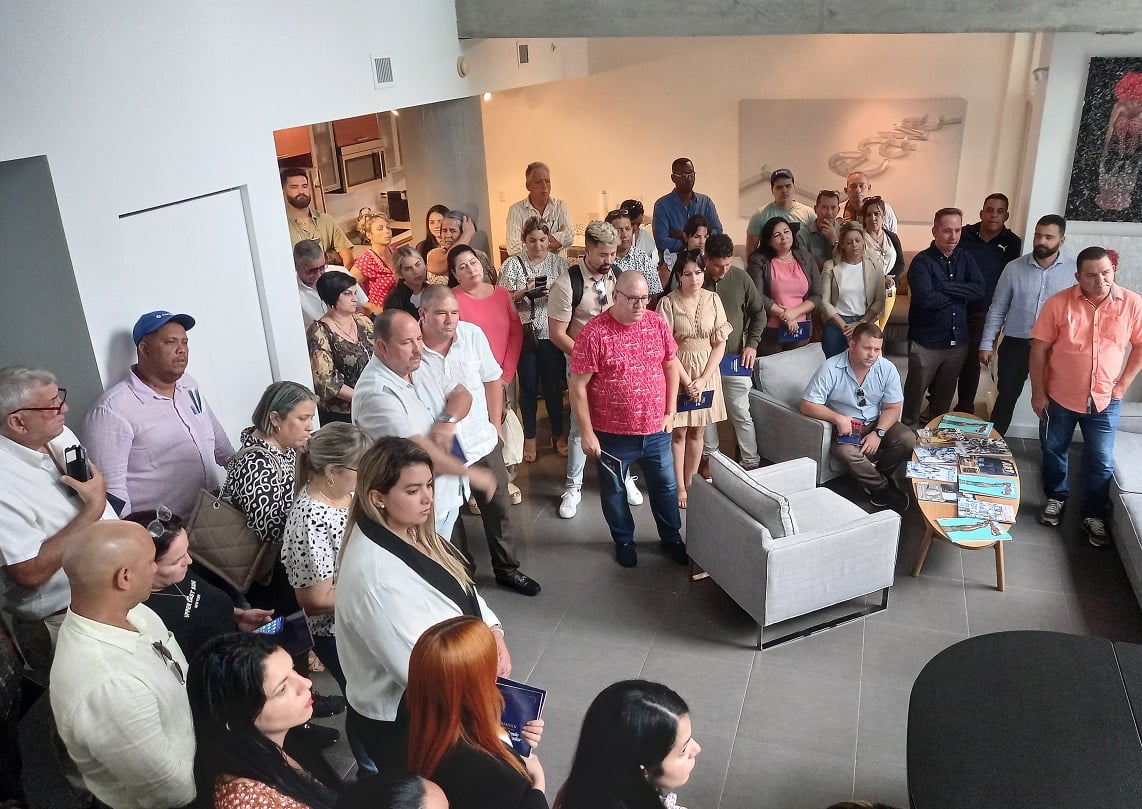
For Yadián Férnandez, technical director and founding partner of the computer products and services company Dofleini, the meeting in Miami has served to change the perspective of at least part of the U.S. business sector regarding private businesses in Cuba.
“I think some had the idea that we are small entrepreneurs or that we walk around with a wheelbarrow selling mangoes on the street, and they have found something very different: highly trained entrepreneurs, businesses that are functioning and growing. This change in perception can help open new paths in relationships between entrepreneurs from here and there,” he believes.
Furthermore, he highlighted that “ties have been created, connections have been created these days between people from both countries that can begin to be exploited, that can function in one way or another for the benefit of their enterprises, and also the people who are their clients in Cuba.”
Fernández confirmed to OnCuba the significance that it would have for Dofleini to enter the U.S. market and export its professional services there. But he points out the existence of impediments derived from U.S. policy towards Cuba that place Cuban enterprises in the sector “at a competitive disadvantage at an international level.”
Among them he mentioned the impossibility of open access to services such as the cloud, as well as certain certifications and training that, although not having them does not prevent them from carrying out their work, would represent a strong guarantee for their clients. However, Fernández trusts that, as has been discussed in recent weeks, the Biden administration will repeal these restrictions.
For his part, Lázaro Valdés, owner of a fruit farm and the Well Valdés MSME, which markets the El Roble brand of preserves, hopes that the United States government will allow private entrepreneurs in Cuba to open accounts in U.S. banks. This, he believes, would make it easier for them to pay for the raw materials, supplies and machinery they need.
For the agricultural producer from San José de las Lajas, Mayabeque, this measure could help him increase the processing capacity of his mini-industry and diversify his production lines, among other advantages.
Regarding the event, the creation of “new possibilities to develop business stands out, such as the coordination office that has just opened now in Miami, which should help us not only to have a greater exchange with businesspeople from the United States and import products to Cuba, but also to export our productions here.”
“All this will allow us to help the country, contribute to the economy, and explore a market closer to Cuba at a time when we are looking for raw materials and inputs to increase production volumes so that there can be more food in the country,” he said.
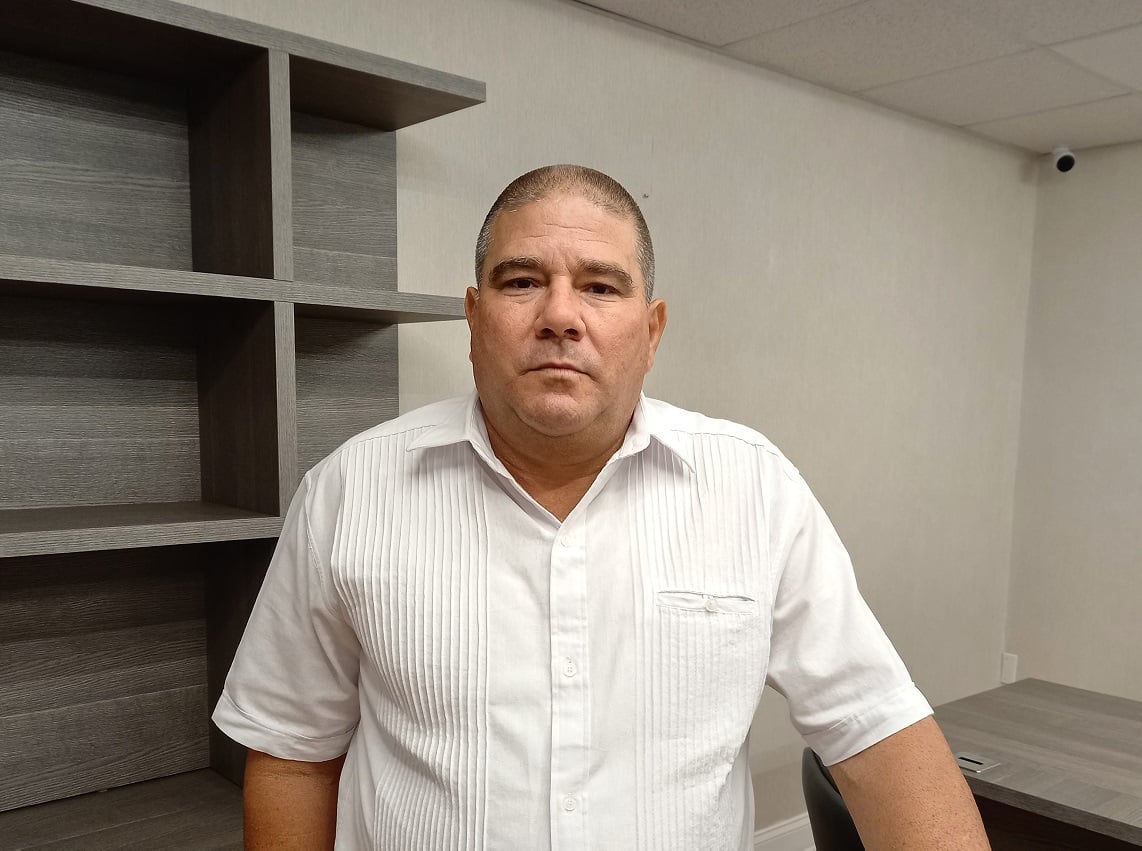
Learning and experiences
Along with the business possibilities and connections with U.S. counterparts, Cuban private entrepreneurs speak highly of the learning and experiences they take away from this meeting in the so-called Sunshine City.
For Yudel Montero, who leads the Constructora Yale MSME, which is based in the Holguín town of Tacajó and deals with construction, repair, restoration, along with other productive and commercial activities, this experience in Miami has been “impressive.”
“We have been able to see the development of companies in the United States, their logistics, their organization, how they work on marketing, and those are very important learnings for entrepreneurs like me,” he said.
Regarding the possibilities that open up with the event, Montero says he is aware that “this is a long road, and we are only at the beginning.”
“Now we have to start walking to get where we want, and we are clear that it is not going to be something that will happen immediately. We have to continue working, we have to strengthen relationships, and it is also very important that both governments take action and work for a mutual understanding that includes us and our work,” he added.
“I would like to make all my products in Cuba, but right now I can’t; if I don’t have the raw materials and the technology, the necessary equipment, I can’t do it,” Montero said. “But I hope that this meeting and the contacts that have been created and can continue to be created in other exchanges, can help us in this sense, and manage to bring what is necessary to Cuba to produce there, which is what we want, to lower costs.”
Meanwhile, Zoraida Pérez, a textile artist who leads the Zocoser MSME in Santa Clara, highlighted that a meeting like this “was unthinkable a while ago” and considers that with its realization “a myth has been broken” and “an important step” has been taken “between the business communities of Cuba and the United States.
“As long as there is respect for what we think, as there was in the event, I think things can work,” she told OnCuba.
She, like Montero, values what she experienced in Miami “with a learning perspective.”
“I really liked being able to listen to the experiences and advice of those great entrepreneurs who were at the event, Cubans who like me started from nothing, knocking from door to door, and look how far they have come,” explained the founder of a small enterprise dedicated mainly to the manufacture of layettes and children’s clothing.
“Based on my presence here, people from Miami have approached me who liked what I do, and I hope something good comes out of this, not only for me, but for all the Cuban entrepreneurs who have come now. But even if no business came out, the experience, the learning, the relationships we have made, I think they have been worth it,” she confirms.
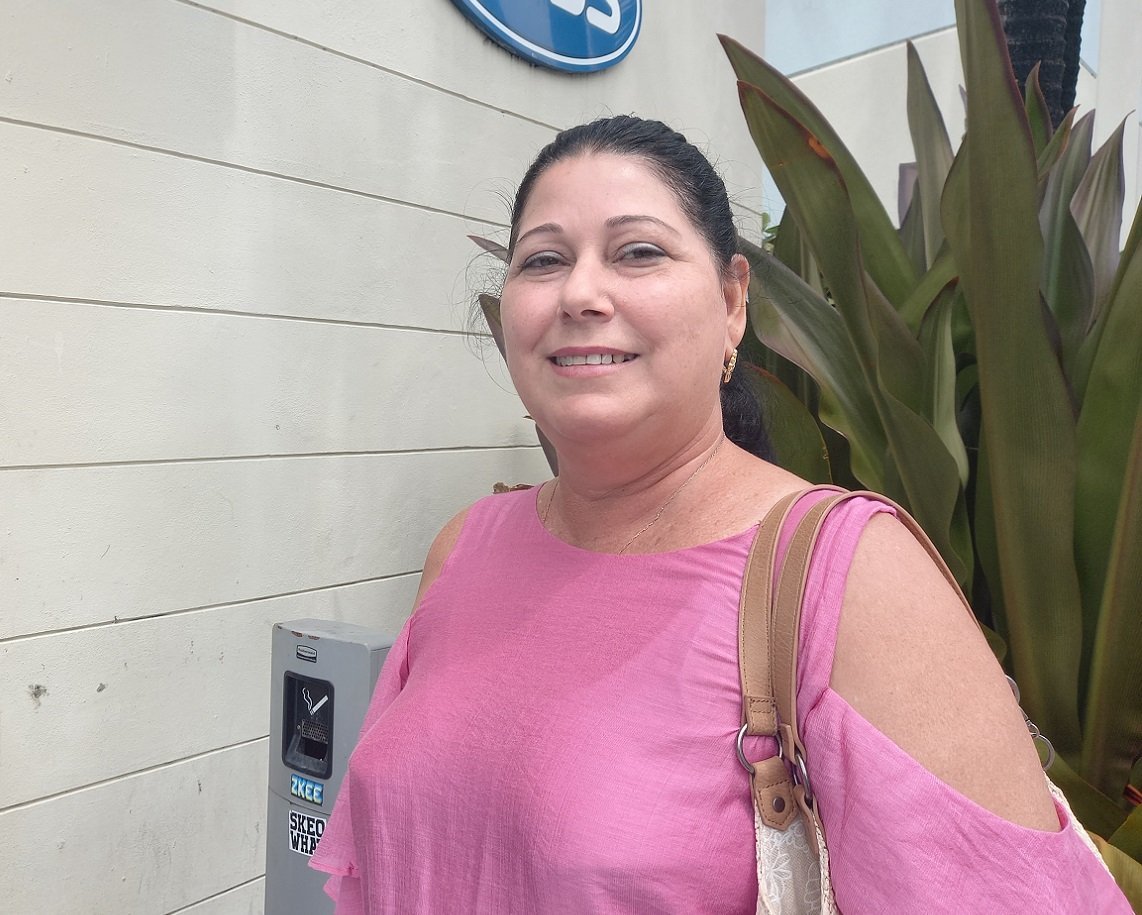
However, Zoraida assures that she feels “hopeful” with what she has been able to assess at the meeting. She values the “positivity” on the part of the United States government and the U.S. and Cuban-American businesspeople with whom she was able to share these days. This, she hopes, could breathe new life into her business and the community it works for.
“The majority of us who came from Cuba ― and I say the majority because I cannot speak for everyone, but I can speak for many that I know ― are entrepreneurs who want to work and succeed in our country,” she assured, “and it is no less true that one way or another we need help for that.”
“This has been an opportunity for businesspeople from here, from the United States, to see what we do there, get to know us and know who we are, which is not what is said here, and if they want to help us for the good of Cuba I think it’s important, because that’s what we want, for Cuba and Cubans to move forward,” she concluded.

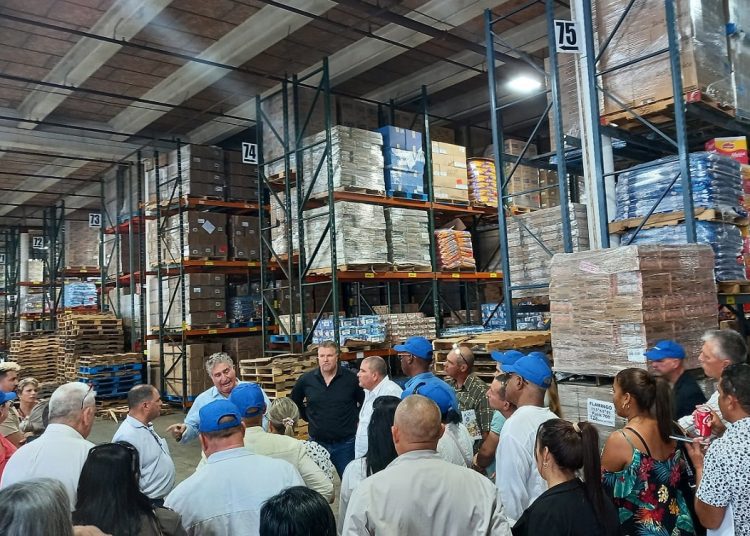









Contrary to what most people think, the US sanctions on Cuba have been a good thing. It has kept Cuba away from corrupting influences of the United Snakes of America. Cuba can find better friends in world.